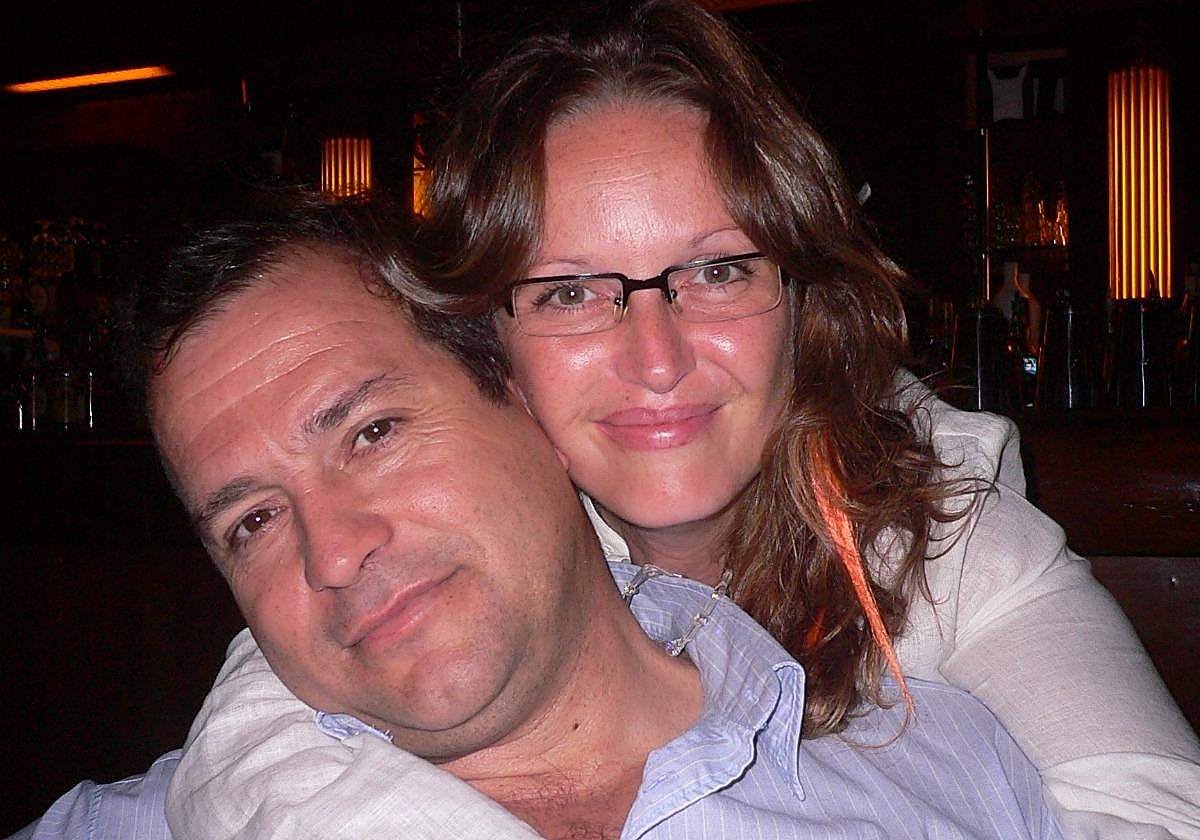Husband calls for 'justice' after wife dies following five-hour wait for ambulance in Malaga town
Cayetano García claims that the first doctor who went to their home in Coín thought it was "nothing serious" and that it looked like gastroenteritis, but in the end his wife died of pericarditis
A court in Coín is investigating the death of María del Carmen Fernández, a 51-year-old local woman who died while waiting for an ambulance to take her to hospital, which, according to her husband, took more than five hours.
It all happened on the morning of 19 September 2023. Carmen was at home with Inma, a good friend who helped her with the housework and looked after her - she was "in delicate health" - when her partner, Cayetano García, travelled around Spain to see clients, as he is a consultant in the food sector.
Carmen, who was originally from Valencia, had overcome two tumours, depression and was currently complaining of severe chest pain. After "six or seven" visits to the hospital, doctors identified the chest pressure as Tietze's syndrome, an inflammatory process in the rib cartilages which, they were told, was not serious.
"The specialists said that they were small heart attacks, nerves, stress.... They told her to go for walks and lead a quiet life, but what stress? Carmen did handicrafts at home," said García, who had been with his wife for 22 years, but they had never had children.
On the day of the incident, Cayetano was working in Barcelona. At 8.30am, he phoned his wife to see how she was and how she had spent the night. An hour and a bit later, he received a call from Inma, who told him that Carmen was not looking well. "I called the emergency services and went to El Prat airport to catch the first plane," he said.
"I told the neighbours," said the caregiver, who said that the first ambulance soon arrived with a doctor, a nurse and a driver. "Their diagnosis was that she was suffering from gastroenteritis and was very dehydrated, and they told us to give her oral saline solution," she explained
Inma and the neighbours were not convinced by the solution - or the diagnosis - and asked why Carmen was not taken to hospital or at least given an IV. According to the witnesses, who have already given statements to the Guardia Civil, the paramedics explained that the ambulance was not equipped to transfer her, that they would send in a report with the situation and that they should wait for a transfer ambulance.
With Inma was Mar, a neighbour who speaks with great affection for Carmen and who cannot help but be moved by the memory of that day. "I tried to make her [the doctor] see that it was urgent, that they couldn't leave her like that because she was very ill, and she suggested that we take her ourselves because there was only one ambulance for the whole district."
They couldn't even move her, because Carmen, who lay prostrate in bed, was in pain all over her body and very weak. "Between the three of us," Inma continued, "we were trying to see what we could do." She doesn't have a car and the other two neighbours had dependent family members, which also prevented them from being away. The solution: keep calling the emergency services. "I couldn't imagine that an ambulance could take so long," added the carer.
Zoom
Mar said that the emergency services - she doesn't know if it was 061 or 112 - told her that the alert had already been given and that there was nothing more they could do. "Then a woman got on the phone with me and asked me how Carmen was, if she was breathing. She told me to put her on the floor and do a cardiac massage," she said.
As the time passed, the woman on the phone, said Mar, recommended that they take turns so as not to exhaust themselves, because it was "super important" that they not stop. "It was desperate. We would ask her how long the ambulance would be and she would tell us that it was coming. We were like that for hours."
Mar and Inma said that the ambulance arrived at around 4 or 5 pm. They were asked to stand back and stayed for a while trying to assist Carmen, who by then was dead. The autopsy confirmed that she had suffered pericarditis. "I will always wonder if she could have been saved if she had been taken in the first ambulance," said Mar, very upset.
"I still wake up seeing Carmen's face," added Inma, who bitterly recalls the impotence she felt. For her, she was "like a sister". For Mar, her best friend: "She was a very, very dear person. She was an animal lover, a rescuer... She was well known by associations and animal shelters. She helped in the fight against cancer and was very involved in everything. It is a shame that she has left us before her time."
Inma, like Mar, agreed to talk for one reason only. "They won't give her back to us, but at least this won't happen to someone else," said the carer. That same idea is what drives Cayetano. "They didn't give her a chance at life. It's very sad the way everything happened," said Carmen's husband, who turned to lawyer Francisco Damián Vázquez, of the Asociación El Defensor del Paciente, to denounce what happened. "I'm not looking for money, I just want justice."
This newspaper sought the version of the Empresa Pública de Emergencias Sanitarias (061). The response was as follows: "As this is a case in judicial proceedings, we will attend to all requests that reach us through that channel, collaborating as always to clarify what happened. 061 regrets the death of the patient and we would like to convey our condolences to the family."

